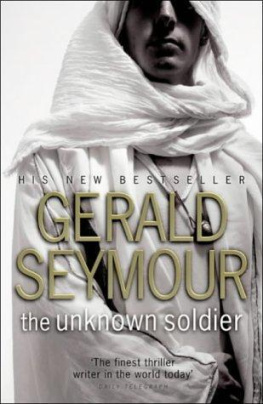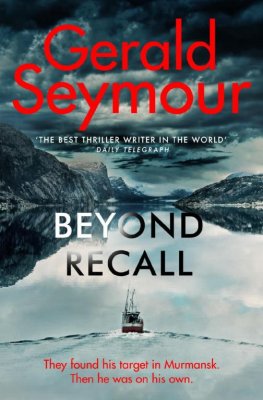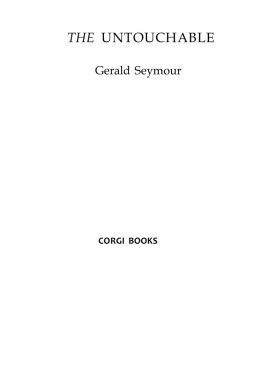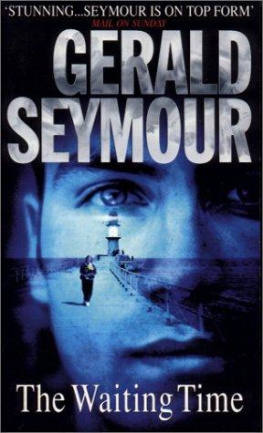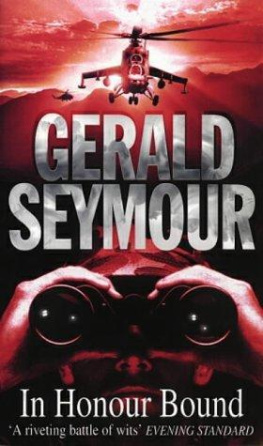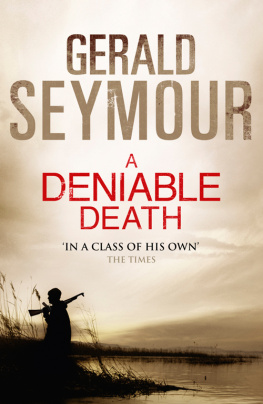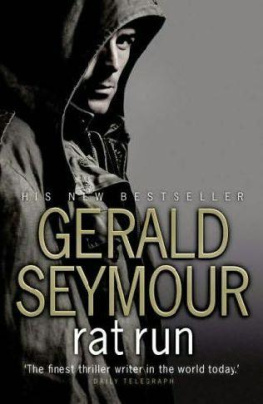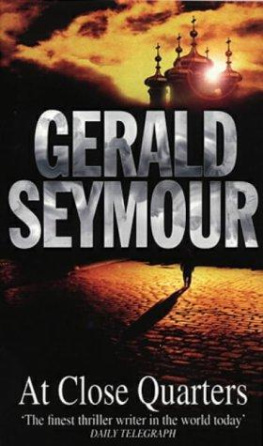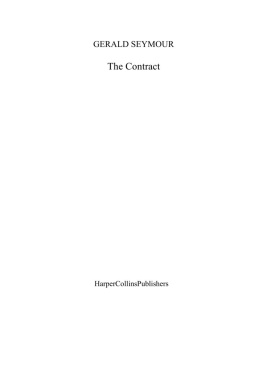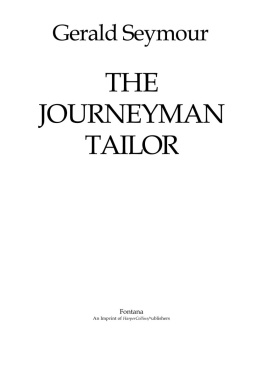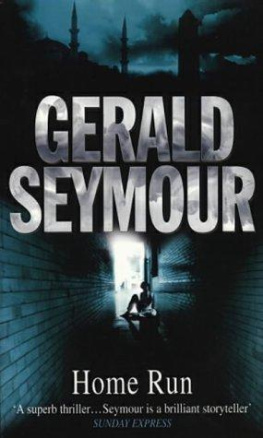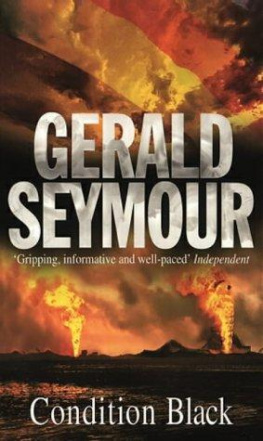Gerald Seymour - The Unknown Soldier
Here you can read online Gerald Seymour - The Unknown Soldier full text of the book (entire story) in english for free. Download pdf and epub, get meaning, cover and reviews about this ebook. year: 2006, publisher: Overlook TP, genre: Detective and thriller. Description of the work, (preface) as well as reviews are available. Best literature library LitArk.com created for fans of good reading and offers a wide selection of genres:
Romance novel
Science fiction
Adventure
Detective
Science
History
Home and family
Prose
Art
Politics
Computer
Non-fiction
Religion
Business
Children
Humor
Choose a favorite category and find really read worthwhile books. Enjoy immersion in the world of imagination, feel the emotions of the characters or learn something new for yourself, make an fascinating discovery.
- Book:The Unknown Soldier
- Author:
- Publisher:Overlook TP
- Genre:
- Year:2006
- Rating:3 / 5
- Favourites:Add to favourites
- Your mark:
- 60
- 1
- 2
- 3
- 4
- 5
The Unknown Soldier: summary, description and annotation
We offer to read an annotation, description, summary or preface (depends on what the author of the book "The Unknown Soldier" wrote himself). If you haven't found the necessary information about the book — write in the comments, we will try to find it.
The Unknown Soldier — read online for free the complete book (whole text) full work
Below is the text of the book, divided by pages. System saving the place of the last page read, allows you to conveniently read the book "The Unknown Soldier" online for free, without having to search again every time where you left off. Put a bookmark, and you can go to the page where you finished reading at any time.
Font size:
Interval:
Bookmark:
THE UNKNOWN
SOLDIER
Gerald Seymour
B A N T A M PRESS:
LONDON NEW YORK - TORONTO SYDNEY AUCKLAND
I had a life. It was not the best, not the worst, but it was a life. It was hard, a struggle, but I did not complain because it was the life that God had given me. I had happiness.'
The voice dripped. Sometimes it faded away, was lost under the noise of the combi-van's engine, sometimes it was little more than a whisper.
'I was blessed. My wife was Muna. Our son was three years old, our daughter was close to one year. They were fine children. The girl had good eyes that were the colour of the early-morning skies in summer, and she would have been beautiful. We lived in the village with my wife's parents, and four houses away were my parents. Her father had fields for goats and my father had an orchard for apples and peaches. Her father said, after our marriage, that he no longer wanted to drive the taxi, and he gave it to me. It was generous of him to give me the taxi and I thought that one day I would have enough money to buy a second vehicle and employ a driver. It was what I hoped. A man with two taxis is a man of substance.'
Caleb thought the driver talked to stay awake. The others slept.
The combi-van stank from the engine's fumes, and from the oil that thev used to clean the weapons. None of them had washed for more than a week. Caleb could not sleep because he was squashed tight against the driver and each time the driver twisted the wheel or reached down for the gear-stick, an elbow nudged into his ribcage and jolted him. Three of his friends had crammed into the rear seats with their rifles, the rocket-propelled grenade-launcher and the rucksack with the missiles; three more were immediately behind him, cradling the rusted old .5 calibre machine-gun taken eleven years earlier from a Russian paratroop platoon. His own body separated the Chechen from the driver, to whom only Caleb listened.
'We did not think the war would come to us. We thought the war was for the cities - for Kabul, Kandahar, Jalalabad. Once there had been a camp for the foreigners near to the village, but it had not been used for two years, and we did not think we would be a target. Why should we be? It was an early morning like any other. I had prayed in the dawn at the mosque and the imam had spoken to us and then I had gone to bring wood for my father and for my wife's father, and I had drawn water from the well and had washed the taxi windows and its body, and I had measured the oil, and then I had told my wife when I would be home in the evening. We were worried for our son because he coughed, but I had said to my wife that I would try in the town, in the day, to get medicine. That day my father was going to select a goat for slaughter because we were close to my wife's birthday, and my wife's father was going to cut back dead wood from the trees in the orchards. It was like any other day and the war was far away. I said goodbye to my wife and I held my son while he coughed up on to my shoulder and I kissed my girl. God forgive me, but I spoke sharply to my wife because my son's phlegm stained my shirt and that would not be good when I went into the town to hope for passengers in my taxi. I left them. I drove past the mosque and past my father's fields where his goats were, and past my wife's father's orchards, and as I went down the hill, very slowly because the road is not tarmacadam but crushed stone, I saw the trails of the aeroplanes in the skies.'
To the Chechen, who had a patch of leather fastened with elastic over his right eye and whose left hand was replaced with a chrome-coated metal claw, Caleb was Abu Khaleb. He and the other men had fought in the north and on the plain south of Kabul and then north of Kandahar, had fought and fled when disaster was about to overwhelm them, then fought again and fled again. For a week they had not rested, had barely eaten. For each of them, pressed into the combi-van - the taxi - it was hard to accept defeat. They were now on a flat plain, featureless, without trees or hills, without cover, and their destination was the mountains where, if those were their orders, they would finally stand and fight from caves, ravines and high ground... if they reached the mountains.
'I was driving down the hill from the village, very carefully so that the holes would not damage underneath the vehicle, and the trails from three aeroplanes were coming towards me. They were very high and I could not see the planes themselves, only the trails they loft behind. In our village we knew little about the war. Everything we knew came from the imam, who had a radio set and who listened to the broadcasts of the leadership from Kabul, but we were far from Kabul. I remember I was angry with the dust that came up from the road because I had just washed the windows. I had no interest in the aeroplanes. It was a good morning and the sun shone... I thought I was blessed by God and I was thinking of the feast for my wife's birthday. I regretted that I had spoken sharply to her about my shirt.'
His head rocked, his chin drooped. Even if Caleb could have slept he would not have done. The elbow butted into his ribcage. But the taxi-driver, who used only the sidelights of the combi-van, had swerved twice on to the rough gravel beside the tarmacadam and each time Caleb had snatched the wheel, heaved it over and prevented them spewing off the road. In the Toyota pickup, with the
.5 calibre machine-gun mounted over the cab, they had been at the back end of a five-vehicle convoy fleeing for the mountains. It would have been chance, luck, that the first four pickups had twisted and negotiated a way through an old roadblock of concrete-filled oil drums and had missed the coil of loose barbed wire. Their pickup had caught it. They had driven on, hearing the scraping of the tangle of wire and had thought they would lose it. They had not. The front left tyre had gone first, then the rear right. Within a kilometre the two tyres were shredded, and they were detached from the convoy, with the cold til the evening gathering round them. There had been an argument. In a babble of voices, Caleb had said they should stay by the road, and the Chechen had backed him. He was the Chechen's favourite.
Four hours later, the taxi van had come down the road. Another argument when it was halted at gunpoint. They were outside the part of Afghanistan they knew, they were strangers there. Caleb had said they should use the driver and, again, the Chechen had backed him. Three hours later, and Caleb smiled ruefully at the thought of it, he knew the driver, the driver's immediate family, the driver's distant family and the driver's village. In the heat of the vehicle, he had shrugged out of his camouflage tunic - the floppy hanging trousers, the long-tailed shirt and the wool cap without a peak made warmth enough.
'I saw my friend, Omar. He had gone down the road from the village to see if there was grazing lower on the hill. He is a good man.
We used to talk and take coffee together when I was not in the town with the taxi. I was slowing when it seemed as if the world exploded.
The taxi was lifted up from the road. If I had not seen Omar and braked to talk to him, the taxi would have gone off the road. I would have been killed, better if I had been killed - but that was not God's will. I was two kilometres from the village, or perhaps a little more, and the noise was like thunder, but greater than anything I had ever heard before. I braked, I ran from the vehicle and lay in a ditch with Omar, my face in the water. I thought the thunder would break my ears... Then it was gone. When I dared to look up I saw the trails of the aeroplanes going away. But I could not see our village. There was a great cloud over it, a cloud of dust. The cloud was from the camp that had not been used for two years, right to my village and past it.
Next pageFont size:
Interval:
Bookmark:
Similar books «The Unknown Soldier»
Look at similar books to The Unknown Soldier. We have selected literature similar in name and meaning in the hope of providing readers with more options to find new, interesting, not yet read works.
Discussion, reviews of the book The Unknown Soldier and just readers' own opinions. Leave your comments, write what you think about the work, its meaning or the main characters. Specify what exactly you liked and what you didn't like, and why you think so.

